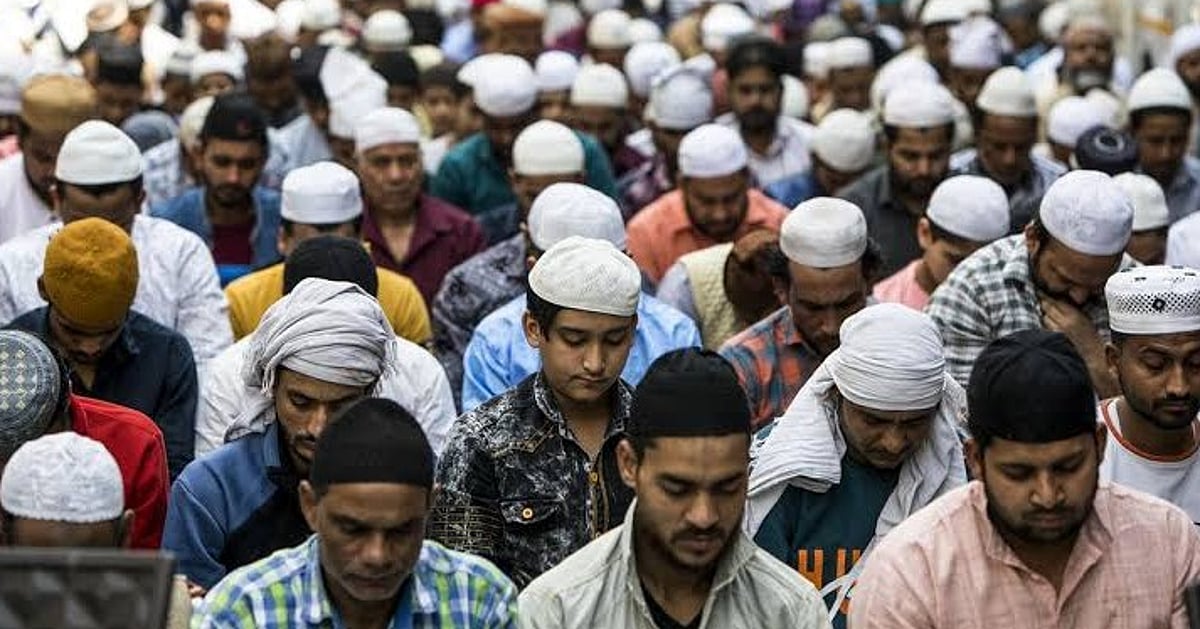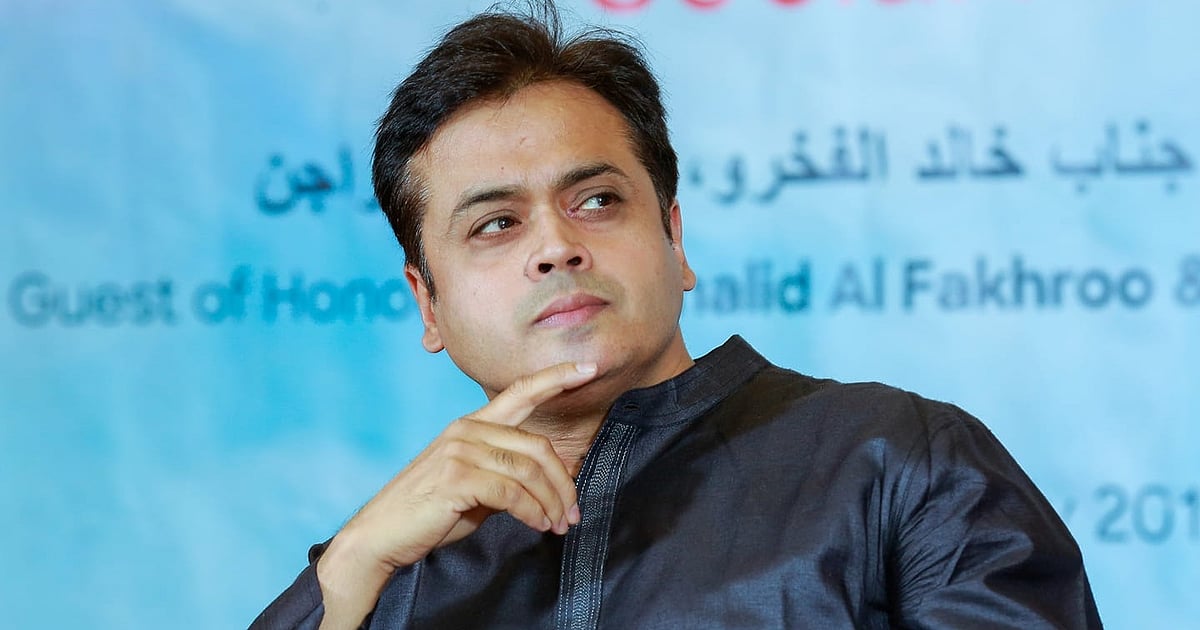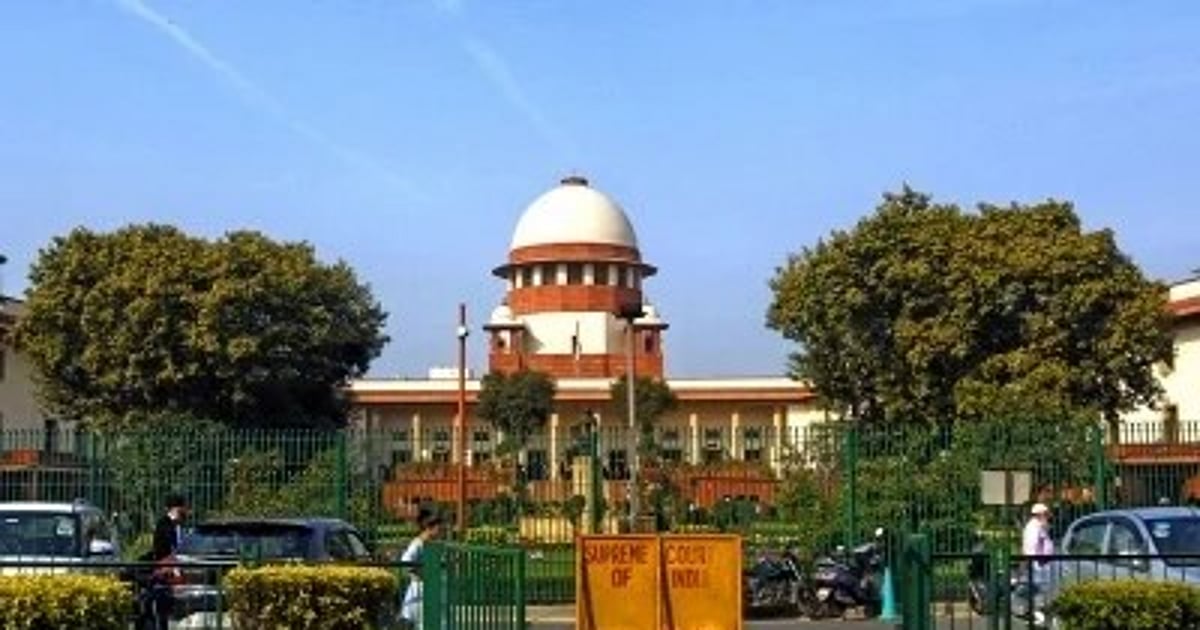National News
Scripting of Bengalis as ‘Bangladeshi’

On 16 June, four Indians were “brought back” from Bangladesh – when they were deported on suspicion of being Bangladeshi.
These four Indians were Muslim, Bengali speakers and suspected to be Bangladeshi, claiming the Maharashtra Police and the State Government. The unfamiliarity of the police in Maharashtra, Gujarat, Haryana or Delhi with various dialects of Bengali or Assamese added ‘suspects’ in their suspicion, allegedly.
Is Bengali saying proof of being Bangladeshi?
Recently, four persons from West Bengal were accidentally identified by the Maharashtra Police as illegal Bangladeshi immigrants. Despite being an Indian citizen, he was detained and handed over to the Border Security Force (BSF),… pic.twitter.com/pjwwvnevru– Team Rising Falcon (@Therfteam) June 17, 2025
Was it more bizarre that these citizens were asked to sing the national anthem. They had fallen, which strengthened the doubt that they were not Indians. Every time he claimed that he was an Indian from West Bengal, he was beaten up, he remembered when he returned to his home.
But how many poor and semi-literate people in India can really sing the national anthem? Even policemen are fully familiar with the song? Is this now a litmus test of citizenship?
Documents produced by these alleged ‘interpopers’ as proof of his Indian citizenship, including their Aadhaar number and even voters’ identity cards, were thrown away – probably on suspicion that they were forged.
The West Bengal government was not taken into confidence.
The Bangladesh government was not consulted, either.
Nevertheless, men were allegedly beaten, taken to the Indo-Bangladesh border, were not far away from their village and were pushed back in Bangladesh on No-Man’s land.
Surprisingly, the Border Security Force also did not work properly here, not consulted with the local police before pushing these citizens across the border at gunpoint.
It was not a separate incident and many such cases have also come up from the Assam border in recent weeks and months.
But for local administration…
Fortunately for these four and recent young people of Bengal, the West Bengal government was eventually alerted.
The local police took action and verified that they were actually an Indian citizen. The information was shared with Bangladesh and four have returned homes.
The incident was widely reported in the media. West Bengal Chief Minister Mamata Banerjee said that she believes that the Prime Minister is not aware of these matters and she said that he would attract attention on them. It was not stated that any of the Maharashtra government, police or BSF apologized for their failure to follow the appropriate process to raise false questions on the citizenship of Indian citizens.
Even though he has Indian certificates from West Bengalis living in BJP ruled states and is being labeled as Bangladeshi and has been forcibly sent back to Bangladesh to speak Bengali.
@MamataOFFICIAL @abhishekaitc @Itsyourdev @AItcsudip pic.twitter.com/SMOO5SRLGT– Snigdha Sarkar (@Snigdhaaitc) 24 June, 2025
Meanwhile, harassment and anxiety have hurt families, but these poor people are happy to come back and want to leave the nightmare.
They are not a type to take the police or government to court. But this is hardly the first time that something like this has happened. This was just another episode in the last one horror series that is playing out of the 1990s.
Even such events are now played, there is also a feeling of déjà vu.
For the day when LK Advani was the Home Minister in the Atal Bihari Vajpayee government, India had already seen such a drive to take out ‘Bangladeshis’. Horror was played in pictures and on television, although not yet on social media. Even then, pictures of men stood up or standing together, standing together, as they were waiting for ‘exiled’ on the Indian border in Bangladesh.
Palash Adhikari and his wife Sukala Adhikari were also not a Bangladeshi Hindu … He was from West Bengal … he was kept in jail for 3 and a half months with his two -year -old son. pic.twitter.com/q6tufvigqb
– Bhiwan (@Bhivansam) June 19, 2025
This is a trend that has intensified in recent years. Now every week, in a state or any other, Bengali speaking men and women are being raised on suspicion of being ‘intruders’ by the police.
The latter itself is under pressure to weed ‘foreigners’ and is working on instructions to investigate the Union Home Ministry that Muslims are Bangladeshi. Catching a ‘criminal’ displays their hard work in the following orders.
Earlier this week, in Rajasthan too, many Bengali speaking men were raised and despite their opposition and production of documents, the police suspected them of being an illegal Bangladeshi immigrant.
So, more than the same… or this time there is something new in the water?
In the 1990s, alleged illegal Bangladeshi immigrants were always tracked in states such as Maharashtra, Gujarat or Delhi National Capital Region.
Activists in Maharashtra, especially the Jhowri Bazaar in Mumbai, and Surat in Gujarat, many of them were highly skilled, to cut and establish a lot of demanding artisans, diamonds and other stones in jewelery and precious gems. Other people were daily wage employees in construction jobs or other unskilled labor; His wives often served as domestic aid in local homes or services and industries, where women formed the wholesale of the workforce.
When the first wave of goals began, the train load of Muslim artisans and Bengali laborers returned to their villages in the 1990s, demanding the support of the government in front of West Bengal headed by CPI (M). They landed at places like Ulubaria in Howrah district, and went back to the villages of Hooghly, Malda and Murshidabad districts.
But now, in May 2025, more than 500 persons of Bangladeshis have been scored from Maharashtra, Gujarat, Uttar Pradesh, Rajasthan, Delhi NCR, Haryana and Goa. They were not sent home or went home; They have been briefly deported. More than 500 people have been scored from Assam and from West Bengal.
In Assam, Shona Banu of a 58 -year -old woman, Barpeta said that she and 13 others were pushed to the border, even though she was an Indian citizen. She has returned since then.
An international consent?
It is a familiar trop, still – and not only in India.
This recently attracted international attention when the United States launched its current cross-country drive on the orders of President Donald Trump to identify, detect, detain and deport individuals. May Or may not be citizens – as well as individuals who may be connected to criminal or terrorist networks, those who may be guilty of violating laws or not, those who can pose a threat to national security or not. And the American Immigration Police is taking this drive with speed, gusto – and shameful disability.
Refruiting the exile of India citizens, however, is bad rule – no matter the Trumpian example.
The exile of illegal immigrants is a different case, of course, and a continuous process. The Border Security Force regularly pushes the people of Bangladesh back who intend to illegally enter India.
To deport Indians, however – as Advani is also revealed – is disabled, politically shameful and expensive.
Determining the identity of Indians, especially Muslims and Bengali-speakers, are also expensive- only one state, the practice of listing Indians in the national register of citizens in Assam, was spent by Indian taxpayers for Rs 1,602.66 crore by March 2022.
“Government of India is accused of illegally deporting Indian Muslims in Bangladesh” – The Guardian
Indian citizens are among those who have been illegally deported. Those who tried to oppose “pushing back” were threatened by India’s Border Security Force at gunpoint. pic.twitter.com/xz1smbes4f– (@catale7a) June 19, 2025
This is probably a comfortable practice for the BJP’s enthusiastic supporters, which is convinced that Muslims will soon defeat Hindus in states like West Bengal, Assam and even Jharkhand, when the saffron party announced that it would identify every illegal Muslim immigrant and send them back to Bangladesh.
Why is this, for the purposes of raising large -scale gathering at the time of election, like a slogan ‘One is (United, VR Safe) formed a political meaning for the Indian Janta Party during the Jharkhand elections in 2024.
Is the drive average for the average citizen, then?
Following concrete and coordinated action by the police and central agencies, a few thousand ‘suspects’ have been thrown into a campaign in several BJP ruled states at some cost.
It does not do class with propagation or even cost.
Economic pressure forces people to get better opportunities elsewhere in some parts of the world. Union Home Minister Amit Shah performed well for years as illegal migrants and performed well to recall the number of remedied Gujaratis. Is there a large number of illegal Bangladeshis in India?
To fulfill Indian citizens of being aliens and illegal immigrants on it, because they speak Bengali – or eat Murri (Puffed rice) and craving fish, or wears Madras-Czech Lungis-and Because they are Muslims Is actually anterior.
As a government policy and as a means of governance, the practice of excluding ‘illegal’ on suspicion rather than verified information is disabled, expensive and just a bad strategy.
Some people in Bangladesh can well infiltrate our borders and get fake documents with the help of local political parties, which are cheap labor to take advantage of both of them and as captive voters. But to target Indian citizens, to polarize people and communal, exposes both calls and disability.
National News
Siddaramaiah, Annie Raja joined Rahul-Tajshvi’s visit and called to protect democracy

He said, “The Narendra Modi government has been caught stealing votes with the help of the Election Commission, which is why BJP leaders have started jumping up and down. This is just the beginning,” he told The Cheering Crowd.
“BJP is shaken and its leaders are irritable. We will expose them in future. No matter what Narendra Modi does … we will not allow votes to vote Theft In Bihar, “Gandhi said.
He further claimed that after the 2024 Lok Sabha elections, 1 crore fake voters were added to the rolls in Maharashtra, calling it a “proven fact”. He also alleged that the deletion into Bihar’s draft roles had targeted the rich and targeted Dalits, backward classes, poor and minorities.
Gandhi said, “Voting is the right of Dalits, minorities, women, but the Modi government has stolen votes to win the election.” “Now, people have started voting for BJP leaders Thief (Thief).”
Yadav, who has emerged as Gandhi’s prominent ally in the campaign, resonated the criticism of the Congress leader. Tejashvi said, “The people of Bihar will teach him a lesson in the upcoming assembly elections. They have been completely exposed.
The yatra also paid tribute to the political legacy of the state. In Gopalganj, Gandhi visited Phulwaria village of RJD supremo and Tejashvi’s father Lalu Prasad Yadav. He hit the statue of Lalu’s mother Marachiya Devi in a gesture, which added the current movement to the rights of voting with long -running conflicts for Social Justice of Behar.
The performance of solidarity is beyond the Congress and the RJD. Annie Raja of the Communist Party of India, who contested against Gandhi in Wayanad during the 2024 general elections, joined the march in West Champaran.
National News
When the secrets are pure – until you are Abhisar Sharma

So, here is the latest spin from the political carnival: Abhishar Sharma, a YouTuber-Journalist and a major national news channel popular former news langar (who thanks BBC He is now a proud subject of a cedar in Assam to dub it “major” and critical), after he was filed, he questioned the allocation of 3,000 acres of tribal land to a private company – a fact that was stagnant High Court judge Hearing the matter – and suggested that the state and its Chief Minister Himanta Biswa Sarma were involved in communal politics.
Sharma’s remarks were already based on the information available in the public domain, mainly CM’s own comments, but when do the facts come in the way of a good cedar? Sharma has received temporary recurrence from the Supreme Court, but has not dismissed the allegations.
But wait – Daman’s performance was a supportive task in art. BJP MPs Nishikant Dubey, who decided for oblivion, is very close, and thus it has been clearly leaked that Sharma’s income tax returns appear on social media – easely indicating that as soon as Sharma started moving on the streets and misbehaved with Modi/BJP, his income was again increased by Rs 1.2 lakh before the rupee. The context is, of course, for Sharma’s anti -BJP stance.
Confidential tax details, finally, reading bus weekends for MPs, not data protected by privacy laws under India’s Income Tax or Information Technology Acts. Who cares, isn’t it? As it happens, ordinary people to do Care. For evidence, read the comments under Dubey’s post.
Sharma announced that he was filing his own FIR-and tagged the Income Tax Department and Union Finance Minister Nirmala Sitarman to ask: Whose desk (or shared USB drive) got this MP access to the top-patched ITR data?
National News
Center cannot challenge Governor’s works under State Article 32: Center to Center: Center

The Central Government on Thursday informed the Supreme Court that the state governments cannot use writ jurisdiction to challenge the work done by the President or a governor belonging to the bills passed by the state assemblies, even if such action allegedly violates fundamental rights.
Representing the Center, during the hearing before the five-judge Constitution Bench, led by Chief Justice Bra Gavai, Solicitor-General Tushar Mehta, the President demanded the opinion of the apex court whether the state could file a writ petition under Article 32 of the Constitution based on violation of fundamental rights.
He further stated that the President wants to understand the interpretation of Article 361, which gives the President and the governors immunity to be responsible for the courts to perform their official duties.
Addressing the bench – also included as Justice Surya Kant, Vikram Nath, PS Narasimha and Chandurkar – Mehta said that although these issues were considered during internal discussions, the President gives a certain verdict from the court, especially when similar questions can be revealed in future.
Mehta said that a Article 32 petition cannot be made against the functions of the state president or governors, stating that no direction cannot be issued to these constitutional authorities.
“Article 32 lies when the constitutional plan leads to fundamental rights and state government violations, it is not a fundamental right in itself. It is a store of tasks to protect the fundamental rights of its people,” said Mehta.
-

 IPL3 months ago
IPL3 months ago‘Any nahhi numba hai’: Furious MS Dhoni loses cool, CSK shouts at players – Watch. Cricket news
-

 Sports3 months ago
Sports3 months ago‘Is MS Dhoni fit or not?’ Cricket news
-

 IPL3 months ago
IPL3 months agoExplained: Why Punjab Kings will get two opportunities to reach IPL 2025 final
-

 National News3 months ago
National News3 months agoIndian Youth Congress started fellowship program for young lawyers
-

 IPL3 months ago
IPL3 months agoIPL 2025: Hardik Pandya hit the unique ‘Triple Century’ in T20S.
-

 IPL3 months ago
IPL3 months ago‘No, you can’t take it …’: Shreyas Iyer’s bold statement. Cricket news
-

 Sports3 months ago
Sports3 months agoHow Rohit Sharma’s bad form with BAT is damaging Mumbai Indians’ IPL 2025 campaign
-

 National News3 months ago
National News3 months agoMamta paid tribute to ‘rebel’ poet Qazi Nazrul Islam on her birth anniversary
